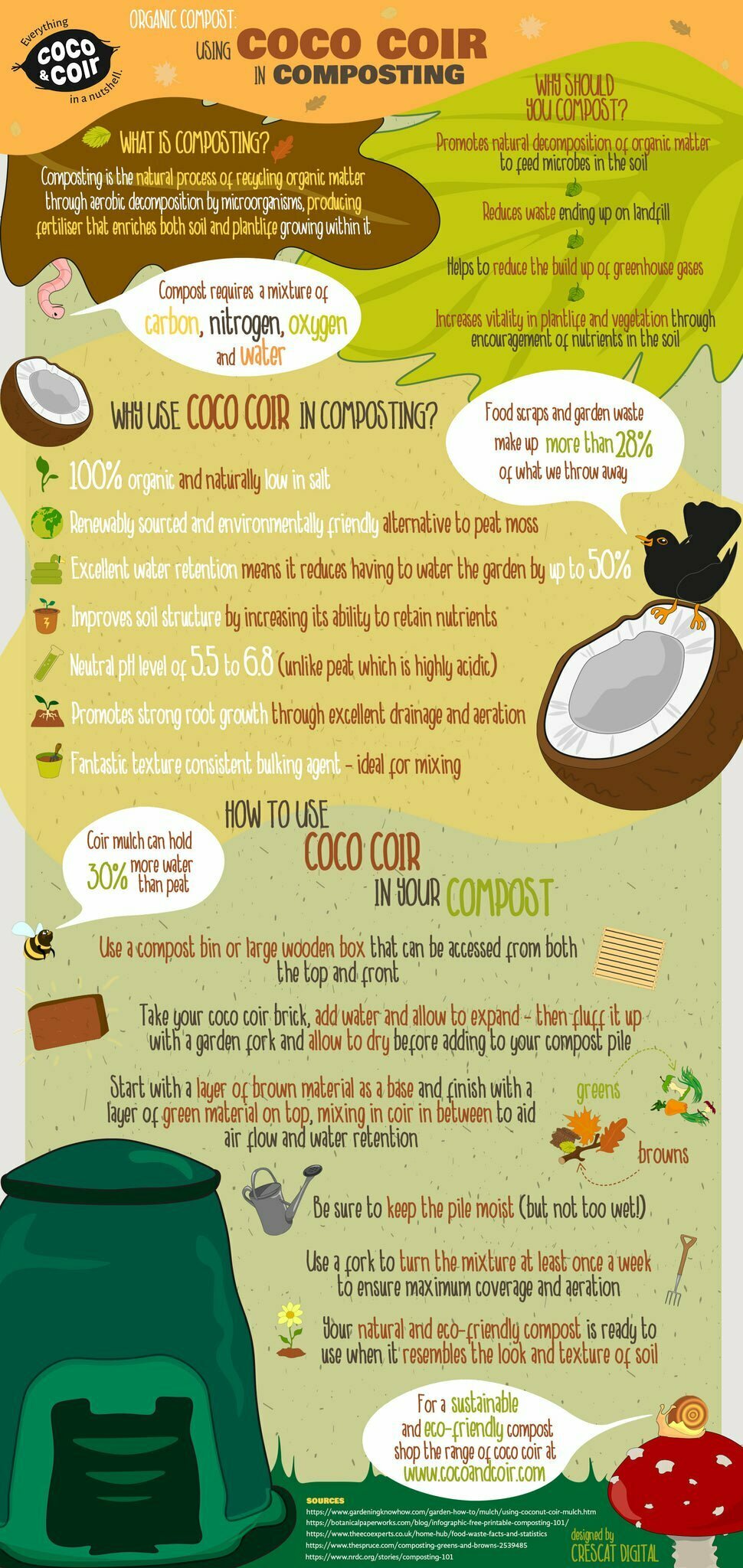Organic compost: using coco coir in composting
With growing concerns over the impact our waste culture has on the environment and the eco-anxiety that comes with it, finding ways to alleviate the burden on our planet seems to be a goliath task.
Reducing our household waste is a great place to start, especially considering the staggering statistic that – in the UK alone – we collectively throw away approximately 9.52 million tonnes of food waste a year.
It’s really no wonder that more and more households are turning to eco-friendly solutions. One such solution that is not only beneficial to the environment on a global scale, but that can have a positive influence a little closer to home is composting.

VIEW THIS INFOGRAPHIC IN HIGH RESOLUTION
Organic matters
Composting is the natural process of recycling organic matter through aerobic decomposition to eventually create a nutritionally saturated fertiliser. This is made possible by microorganisms working hard to turn food waste into figurative gold for your soil.
For compost to be truly effective, it needs a combination of substances:
- Nitrogen-rich green materials, e.g. fruits, vegetables, grass clippings and weeds
- Carbon-rich brown materials, e.g. leaves, twigs, bits of cardboard and sawdust
- Oxygen to help keep the air flowing throughout the pile
- Just enough water to help keep the process moving along nicely.
While each component plays a vital part in the decomposition process, there is a simple and eco-friendly way of giving nature a helping hand: coco coir.
Natural, neutral and nutritious
Coco coir is an organic, 100% natural bi-product of coconut farming. The fibrous husks of coconuts, which would otherwise end up on landfill, are cultivated into coir to produce a sustainable and environmentally friendly alternative to peat moss.
Many people who make their own peat-free compost by using various ingredients sometimes overlook the benefit coir offers as a nice texture-consistent bulking agent, as well as its excellent water retention and drainage qualities.
Having coir coalesce with organic matter throughout the pile helps promote decomposition by being a biotic catalyst, feeding the microbes within it.
On a scientific level, the pH balance of coir is neutral (between 5.5 and 6.8) which is the perfect condition for microorganisms to thrive.
When paired with coir’s aptitude for aeration, it vastly improves the structural integrity of the soil, retaining its valuable nutrients.
Once your compost is fully formed into fertiliser, you can use it around the garden and watch as your plants and vegetation reap the benefits!
How to use coco coir in compost
Adding coco coir to your compost pile couldn’t be simpler! To start, it is recommended you have a compost box or bin that is roughly 3 feet wide, deep, and tall to allow enough room for the magic to happen. Ideally it should be accessible from the top and front.
Take your coir brick, add some water, fluff it up with a garden fork to create a soil-like consistency, and allow to dry.
For perfect composting conditions, it is advisable to start with a base layer of brown materials and end with a layer of green, mixing the coir in-between to create optimal air flow and aid water retention. Ensure you keep the mixture wet but do not over-water!
Regularly turning the pile over will help accelerate the process. Your all-natural and sustainable fertiliser will be ready to use once it has the look and feel of soil.
With a wide range of Coco & Coir products to choose from, there’s no time to waste in the fight against food waste. What are you waiting for?
Happy composting!










